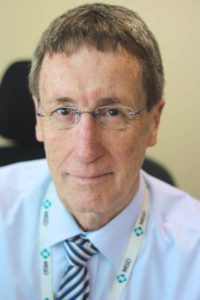
Making families
Metropol caught up with fertility specialist, Dr Pete Benny, who has just returned to New Zealand as Genea Oxford Fertility’s Medical Director, about the options available for making families.

What attracted you to working in this field?
I’d always enjoyed science, particularly learning about endocrinology (hormones). The field of fertility applies science to helping people have a family.
Many women have spent their entire lives trying not to get pregnant, then they’re shocked when they can’t easily have a baby. What are some of the reasons why we’re struggling to get pregnant these days?
The prevalence of infertility in each age group is the same as 20 years ago, or longer.
The difference now is that people are delaying pregnancy, so the age they are trying to get pregnant has increased.
In the past, there wasn’t the technology available to help. Now there is.
What are some of the biggest myths when it comes to fertility?
A major fallacy is that if people try IVF, it will be instantly successful.
Many people believe they can delay starting a family because of their faith in IVF. Sadly it doesn’t always work.
Another common myth is that infertility is primarily a female problem. We know now that it is just as likely to stem from male issues.
How long should couples wait before they seek medical advice?
If you’re under 35 and there is no obvious problem, seek advice if you’re not pregnant within a year of trying to have a baby.
If you’re over 35, see someone within six months. But always seek advice if something just doesn’t feel right or you are worried.
Should we be thinking about fertility well before we actively want to get pregnant?
I think we should all be more aware of our fertility and the things that impact upon it, particularly lifestyle and environment.
We should have a plan for our lives and if having a family is important, then allow time for that to happen.
What are the treatment options available in New Zealand for fertility?
Treatments depend on the cause of infertility.
The first issue to consider is your lifestyle.
For example, poor nutrition or too much stress won’t increase your chances of becoming pregnant.
Other issues, such as endometriosis or lack of ovulation, may need to be addressed to allow conception.
There are various options available including IVF to fertilise the eggs; fertilisation using micro-injection (ICSI), or identifying the right embryos with PGT-A.
If we can’t treat someone with IVF, then we explore donor eggs or sperm, donor embryos or even surrogacy. We can also recover sperm directly from the testes, if necessary.
What are the benefits of non-medical approaches in increasing the chance of pregnancy – such as relaxation techniques and meditation?
It’s difficult to prove that these methods treat infertility.
They do however help people deal with the delays that are often associated with treatment and may give people time to achieve a natural conception.
Such techniques can also help people deal with the stresses of not achieving a pregnancy.
What’s the most fulfilling part of what you do?
It is watching people grow, while achieving their goal of having a family.
I get a huge amount of joy from seeing them fulfil their desire for a family.




